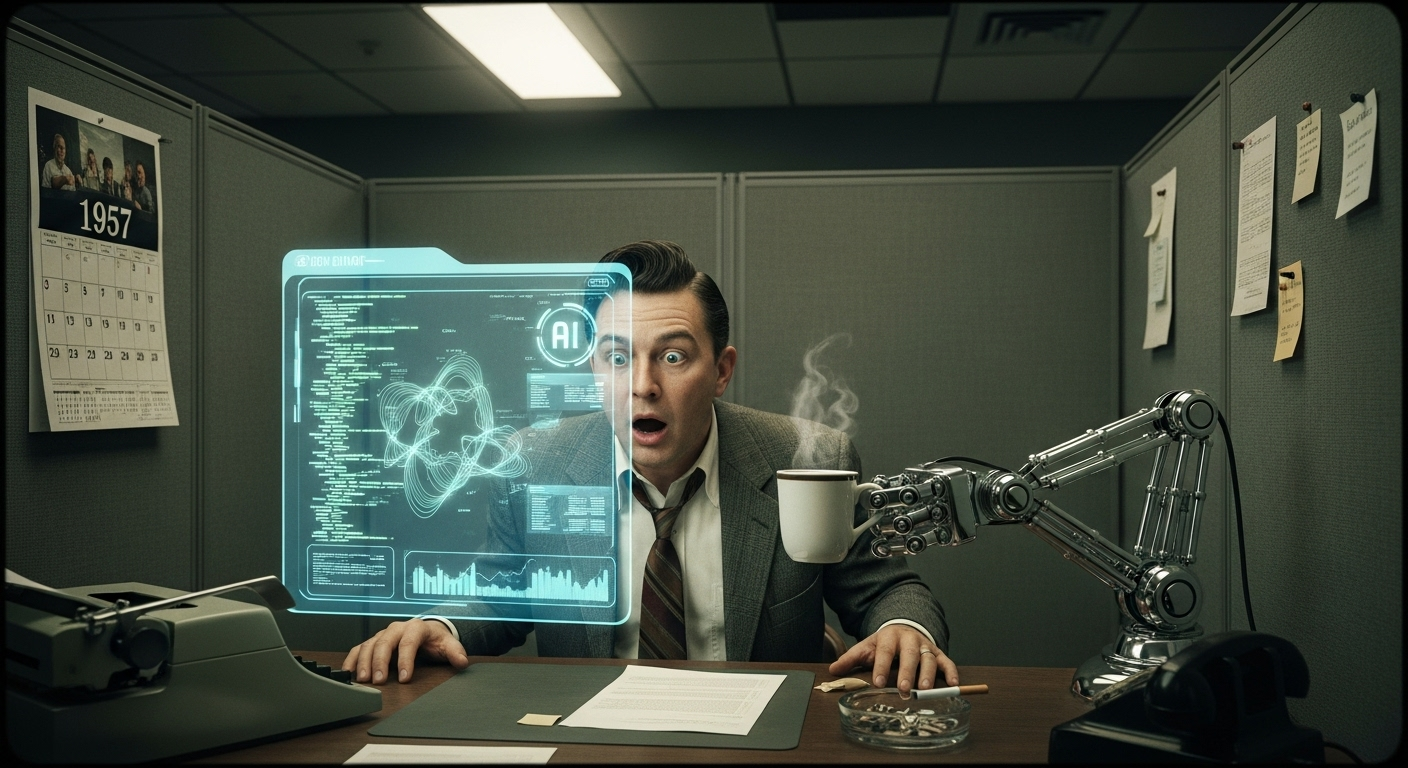Jensen Huang’s bold prediction about AI and the future of work isn’t as scary as it sounds… mostly.
So, you might’ve seen the headlines buzzing around about Nvidia CEO Jensen Huang. He’s a pretty smart guy, and he recently dropped a truth bomb: he plans to “either change or eliminate every single person’s job with AI.” Yikes, right? Sounds a bit like a sci-fi movie where robots take over the world, starting with your Monday morning commute.
But let’s take a deep breath and unpack that. Is your desk already being eyed by a sentient stapler? Probably not. What Huang is really getting at is the transformation of work, not necessarily its total annihilation. Think of it less like a job-pocalypse and more like a massive, global office renovation.
The AI Revolution: More Than Just Automation
Historically, new technologies have always shifted the job market. The Industrial Revolution didn’t eliminate work; it changed how we worked and created entirely new industries. AI is simply the latest, and arguably most powerful, wave.
When Huang talks about “changing” jobs, he’s envisioning a world where AI acts as a powerful co-pilot. Imagine your most tedious, repetitive tasks – the data entry, the scheduling, the endless email sorting – being handled by an AI. Suddenly, you’re freed up to focus on the creative, strategic, and uniquely human aspects of your role. That’s a job change, not elimination. And honestly, who wouldn’t want less soul-crushing admin and more actual problem-solving?
The “Elimination” Factor: A Bit More Nuance
Okay, so what about the “eliminate” part? Yes, some roles that are highly repetitive and don’t require complex human judgment or creativity might shrink or disappear. Think of certain factory lines, basic customer service, or highly predictable data analysis. But even here, it’s often about re-skilling people into new roles that manage or interact with these AI systems.
It’s like when ATMs came along. People worried bank tellers would vanish. Instead, their roles evolved into more complex customer service and advisory positions. AI will likely accelerate this evolution, pushing us to develop skills that complement, rather than compete with, artificial intelligence.
Your Future Job: The AI Whisperer?
So, what does this mean for your job? It means embracing adaptability. The skills that will be invaluable in the AI-powered future aren’t just coding (though that helps!). They include critical thinking, creativity, emotional intelligence, complex problem-solving, and the ability to work with AI tools. Think of yourself as an AI whisperer, guiding these powerful tools to achieve human-centric goals.
Instead of fearing the AI takeover, consider it an invitation to level up. Learn about AI, experiment with tools like ChatGPT or Midjourney, and think about how they could make your current job more efficient or even spark entirely new career paths. The future of work isn’t about humans vs. machines; it’s about humans with machines.
Jensen Huang’s vision isn’t about making us obsolete; it’s about making us more effective, more creative, and perhaps, a little less stressed by the mundane. The question isn’t if your job will change, but how you’ll ride that wave. Ready to surf?
